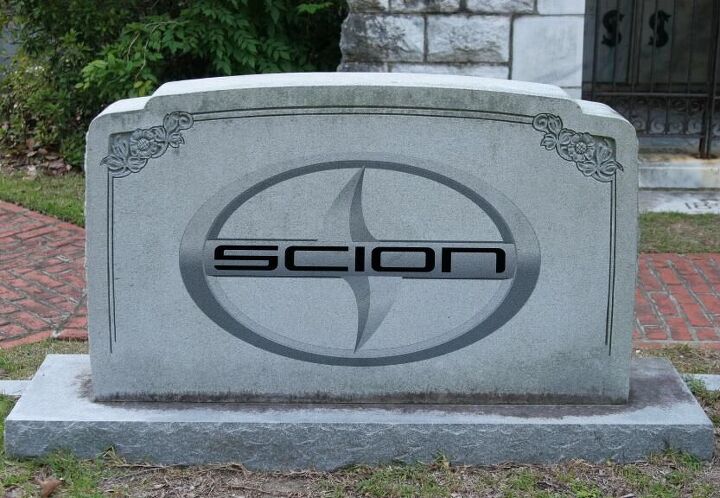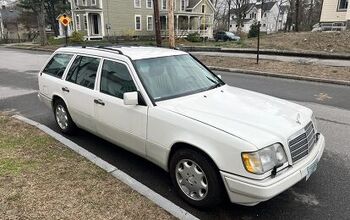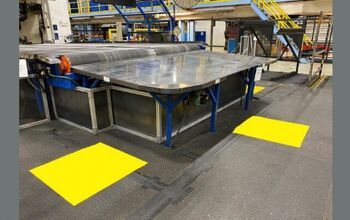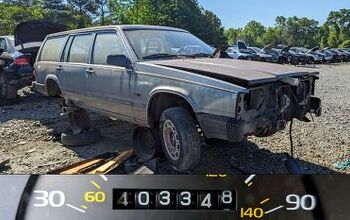OFFICIAL: Scion Is Dead, Will 'Transition to Toyota' for 2017 Model Year

Toyota officially announced Wednesday morning that Scion will “transition to Toyota,” effectively killing off the youth brand started in 2002. Its first vehicles went on sale in California in 2003, and included the xA hatchback and xB wagon.
According to a release from Toyota, Scion “is now transitioning back to the Toyota brand” and most Scion models well be rebranded as Toyotas starting August 2016 for the 2017 model year, including the forthcoming C-HR. The Scion tC will be discontinued as of August 2016.
“This isn’t a step backward for Scion; it’s a leap forward for Toyota. Scion has allowed us to fast track ideas that would have been challenging to test through the Toyota network,” said Jim Lentz, founding vice president of Scion and now CEO, Toyota Motor North America. “I was there when we established Scion and our goal was to make Toyota and our dealers stronger by learning how to better attract and engage young customers. I’m very proud because that’s exactly what we have accomplished.
“We could not have achieved the success we have had without the incredible support of Scion’s customers, dealers and team members, so supporting them throughout this transition process will be one of our top priorities,” said Lentz.
According to Toyota, the average age of a Scion buyer is 36, and the Scion tC has the lowest-average age buyer in the industry at 29. New models — the iA and iM — claim 70 percent of their buyers as being first-time new car purchasers.
While Toyota didn’t overtly state there will be no loss of staff as part of the transition, it did say “Scion’s 22 dedicated team members, who represent sales, marketing, distribution, strategy, and product and accessories planning, will have the opportunity to take on new jobs at Toyota Motor Sales, U.S.A., Inc. in Torrance.”
A total of 1,004 Scion dealers will be affected, though most of those locations are dual-brand stores that also sell Toyotas.
Toyota sold a total of 1,092,675 cars under the Scion marque from 2003 to the end of 2015.

More by Mark Stevenson
Latest Car Reviews
Read moreLatest Product Reviews
Read moreRecent Comments
- W Conrad I'm not afraid of them, but they aren't needed for everyone or everywhere. Long haul and highway driving sure, but in the city, nope.
- Jalop1991 In a manner similar to PHEV being the correct answer, I declare RPVs to be the correct answer here.We're doing it with certain aircraft; why not with cars on the ground, using hardware and tools like Telsa's "FSD" or GM's "SuperCruise" as the base?Take the local Uber driver out of the car, and put him in a professional centralized environment from where he drives me around. The system and the individual car can have awareness as well as gates, but he's responsible for the driving.Put the tech into my car, and let me buy it as needed. I need someone else to drive me home; hit the button and voila, I've hired a driver for the moment. I don't want to drive 11 hours to my vacation spot; hire the remote pilot for that. When I get there, I have my car and he's still at his normal location, piloting cars for other people.The system would allow for driver rest period, like what's required for truckers, so I might end up with multiple people driving me to the coast. I don't care. And they don't have to be physically with me, therefore they can be way cheaper.Charge taxi-type per-mile rates. For long drives, offer per-trip rates. Offer subscriptions, including miles/hours. Whatever.(And for grins, dress the remote pilots all as Johnnie.)Start this out with big rigs. Take the trucker away from the long haul driving, and let him be there for emergencies and the short haul parts of the trip.And in a manner similar to PHEVs being discredited, I fully expect to be razzed for this brilliant idea (not unlike how Alan Kay wasn't recognized until many many years later for his Dynabook vision).
- B-BodyBuick84 Not afraid of AV's as I highly doubt they will ever be %100 viable for our roads. Stop-and-go downtown city or rush hour highway traffic? I can see that, but otherwise there's simply too many variables. Bad weather conditions, faded road lines or markings, reflective surfaces with glare, etc. There's also the issue of cultural norms. About a decade ago there was actually an online test called 'The Morality Machine' one could do online where you were in control of an AV and choose what action to take when a crash was inevitable. I think something like 2.5 million people across the world participated? For example, do you hit and most likely kill the elderly couple strolling across the crosswalk or crash the vehicle into a cement barrier and almost certainly cause the death of the vehicle occupants? What if it's a parent and child? In N. America 98% of people choose to hit the elderly couple and save themselves while in Asia, the exact opposite happened where 98% choose to hit the parent and child. Why? Cultural differences. Asia puts a lot of emphasis on respecting their elderly while N. America has a culture of 'save/ protect the children'. Are these AV's going to respect that culture? Is a VW Jetta or Buick Envision AV going to have different programming depending on whether it's sold in Canada or Taiwan? how's that going to effect legislation and legal battles when a crash inevitibly does happen? These are the true barriers to mass AV adoption, and in the 10 years since that test came out, there has been zero answers or progress on this matter. So no, I'm not afraid of AV's simply because with the exception of a few specific situations, most avenues are going to prove to be a dead-end for automakers.
- Mike Bradley Autonomous cars were developed in Silicon Valley. For new products there, the standard business plan is to put a barely-functioning product on the market right away and wait for the early-adopter customers to find the flaws. That's exactly what's happened. Detroit's plan is pretty much the opposite, but Detroit isn't developing this product. That's why dealers, for instance, haven't been trained in the cars.
- Dartman https://apnews.com/article/artificial-intelligence-fighter-jets-air-force-6a1100c96a73ca9b7f41cbd6a2753fdaAutonomous/Ai is here now. The question is implementation and acceptance.


































Comments
Join the conversation
Scion started out ok, especially with the tC, a sporty, inexpensive and decemt looking car that you could add some cool extras on. The xb was popular, and the whole lot seemed reliable enough. What happened after that was uglier cars in a half-hearted attempt to update, and tjr IQ, which just looked awful and tried to cash in on Smart's misery and stupidity. It seems like they just stopped caring after a few years.
I would not call it a failure. They attracted younger people to Toyota. Millenias do not like cars in general and if forced into car love brands driven by their parents (except my son of course) so they refused to buy Scions leaving the honor to own Scion to Xers and Boomers. It is the most conformist/socialist/jobless generation in American history. I had no idea that Scion was making cars other than tC and FR-S. tC is American version of Avensis as far as I understand. In EUrope it is class between Corolla and Camry (not sold in Europe anymore). I.e. something that was similar to Passat/Vectra (VW never had D-class car and Opel had Omega).